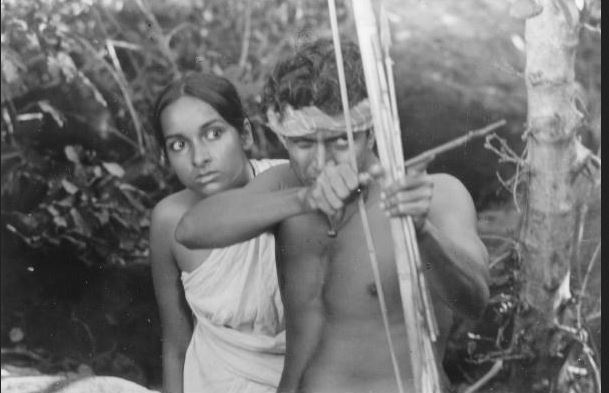
Death penalty and the power of dialogue on big screen

The mere mention of the words sazaa–e–maut and fansi in Hindi or thooku thandanai in Tamil — or death penalty — by a judge in a movie would elicit sobs from the kin of the family, waiting with hope in the court, and leave the accused himself in shock and dismay or just blank.
From filmmakers like Gulzar to Mrinal Sen in Hindi and Kamal Haasan in Tamil cinema, death penalty has been a much-debated subject in the celluloid medium.
In a more contemporary setting, the 70s saw lyricist and director Gulzar make Achanak (1973), the story of an army man Colonel Ranjeet Khanna (Vinod Khanna) who kills his wife and her lover, his best friend, after discovering their betrayal. He escapes from the police after his arrest to fulfil his wife’s wish of dropping her mangalsutra into the Ganges after her death. Injured during the chase by the police who fire at him, he is hospitalised, where he is treated with care by the nurse Radha (Farida Jalal), who considers him as her brother and the doctor, Dr Chaudhry (Om Shivpuri) whom he gets attached to.
However, he has to be sent back in custody after treatment. While the doctor and the nurse reluctantly prepare for his discharge, knowing that he has no further escape from the noose, they are filled with questions. What purpose does their profession serve? Why cure and care for an injured man when he finally has to be sent to the gallows to die?
The prevalent caste system and the resultant atrocities in hinterlands of India have been a perfect premise for the plots.
Set in the colonial rule, Sen’s Mrigayaa (1976), starring Mithun Chakraborty as a tribal man Ghinua and an expert archer, questions the different approach to the same action — murder. While one man who kills an accused, a young revolutionary accused of the murder of a policeman, by the British administrator, is let off, Ghinua is sentenced to death by the same administrator, for killing the man, who abducted his wife.
Mrigayaa (meaning royal hunt) is representative of the hunting down of a lesser privileged man, a tribal, by those in power for money and gain. On the same lines, Aakrosh (1980) by cinematographer-filmmaker Govind Nihalani, starring Om Puri, Naseeruddin Shah and Smita Patil about a tribal man Bhiku (Om Puri) who has only silence to offer when charged with the murder of his wife Nagi (Smita Patil), who was actually gangraped by powerful men from the same village. He knows he might be sentenced to death, but he can hang only once. At his father’s funeral, he kills his young sister to save her from the same fate as his wife, in his absence.
Massey Sahib (1985) starring Raghubir Yadav and helmed by Pradip Kishan is the story of Francis Massey, who serves the British in a small town. Set in the 1920s, the story is about the travails of Massey who wants to be like the Sahib (his English master Charles Adam), as he tries to move away from his roots, resorting to manipulations. A chain of actions, prompted by his desire to please the boss, turns him into a murderer and he is sentenced to death for the act, without any support from the Sahib he adulated. In the end, it leaves you with the question of how he has only himself to blame for the sad end he meets with.
In Tamil cinema, one of the bold takes on capital punishment has been Kamal Haasan’s Virumaandi that calls for the abolition of death penalty. Exploring caste lines in Tamil Nadu, fights over land ownership and tales of revenge, coupled with activism, Virumaandi with Kamal playing the title role, argues vociferously against the sentence that does no good, and is actually state-sponsored vendetta that is unacceptable in civil society.
The recurrent portrayal of the sentence on the big screen can be pinned to the inherent complexities. As the subject of death conjures up a myriad emotions, pain, anguish, a sense of loss, etc., it leaves a lot of scope for introspection for an antonymous life. Probably, when death is considered to be retribution, it brings about the most powerful of emotional imagery amid a great deal of discussion.

